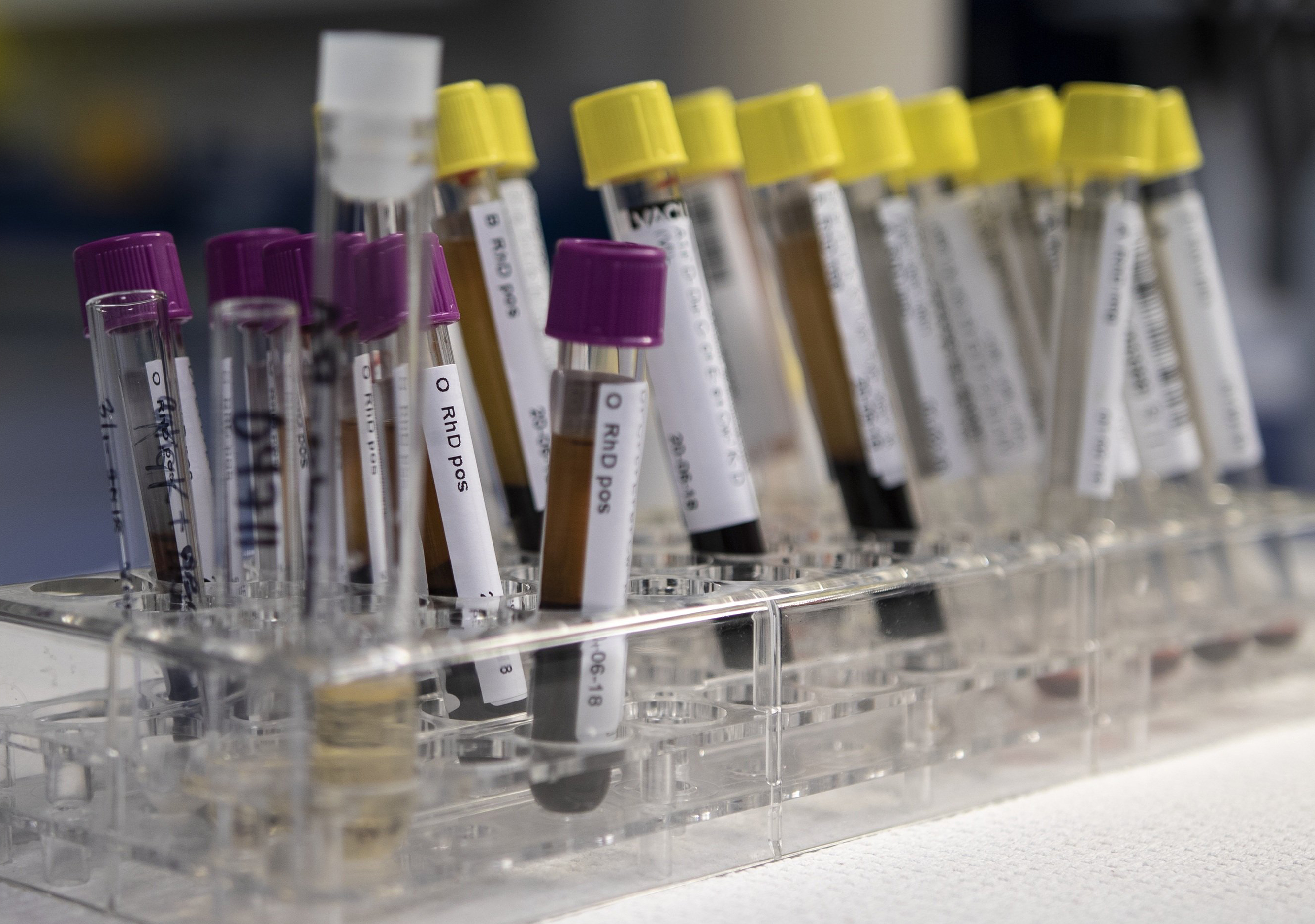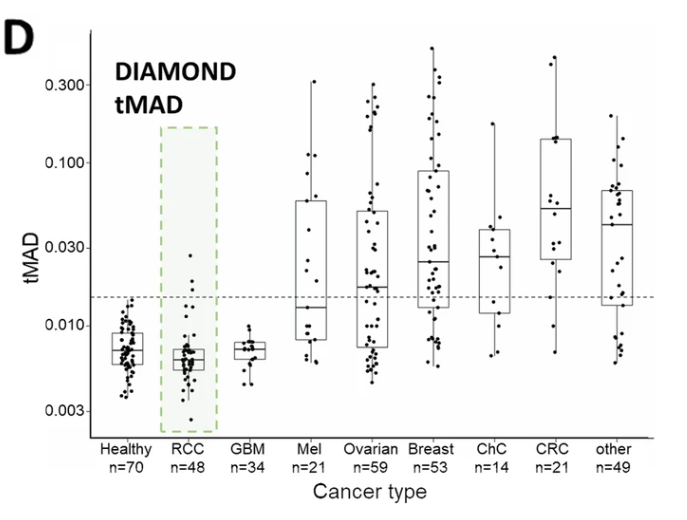
Members of our Urological Malignancies Programme, along with colleagues at the Medical University of Graz, Austria, have published research on cell-free tumour-derived DNA (ctDNA) in kidney cancers in the journal, Genome Medicine.
The detection of ctDNA in blood or urine – known as ‘liquid biopsies’ – has been established as a method for non-invasive monitoring for many cancers, such as breast, lung and colorectal. This study is the most extensive analysis to date in patients with kidney cancers.
Dr Christopher Smith, who is based in the Rosenfeld lab at the CRUK Cambridge Institute, is joint first author of the study which analysed urine and blood plasma from 91 kidney cancer patients.
The authors were surprised to find that the levels of ctDNA in plasma and urine were much lower than observed in other solid organ cancers of similar size and stage – a curious observation given that renal cancer is an aggressive malignancy in a vascular organ. Despite this, the team were able to detect tumour DNA in body fluids for around half of the patient samples using a combination of advanced sequencing based methods.
Their results suggest that regular testing of patients’ urine and plasma can identify if tumour cells are still present after treatment for some patients. This helps establish how such techniques could be used in future to aid the clinical management of kidney cancer patients.
Christopher said: "Renal cancer is a lethal urological malignancy, the incidence of which is steadily rising. Cell-free tumour DNA has proved informative in many cancer types, but little data exists for renal cancers.
“We collaborated with Ellen Heitzer's group in Austria to carry out the most comprehensive study to date of patients with a variety of subtypes and stages of kidney cancer. We were surprised to find that the levels of ctDNA in plasma and urine of these patients were very low indeed. Using a variety of approaches, including a state of the art personalised sequencing assay recently developed at the CI by the Rosenfeld lab, we found that we could detect ctDNA in patients with larger tumours or that had local invasion to the renal vein.
“We also observed the potential of longitudinal sampling to track disease course in some patients with metastatic disease. Finally, in select patients we found that ctDNA can pick up mutations identified in spatially distinct biopsy samples of the matched tumour, suggesting that ctDNA can help address challenges of genetic heterogeneity.”
Professor Grant Stewart (joint senior author and Professor of Surgical Oncology) added: “Overall we found that whilst detection of ctDNA in renal cancers is challenging, it has tremendous potential for clinical utility. We are already improving the methodology and undertaking research to understand why the ctDNA levels are lower than expected.
“We are also validating our findings in ongoing clinical trials such as the WIRE trial of new combination therapies in kidney cancer, supported by the Mark Foundation Institute for Integrated Cancer Medicine."
Reference:
Smith, C.G., Moser, T., Mouliere, F. et al. Comprehensive characterization of cell-free tumor DNA in plasma and urine of patients with renal tumors. Genome Med 12, 23 (2020). https://doi.org/10.1186/s13073-020-00723-8















